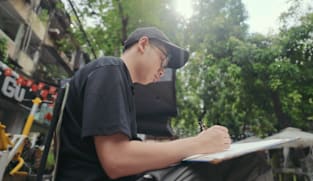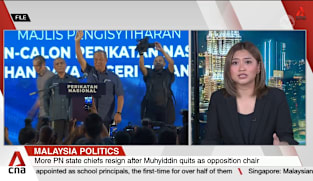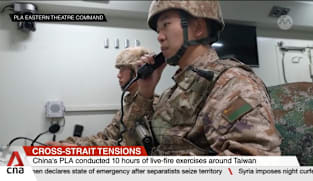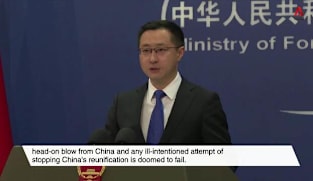Muhammad Faishal Ibrahim on Criminal Law (Temporary Provisions) (Amendment) Bill
A Bill to extend the Home Affairs Minister’s power to detain someone without trial over alleged links to gangs and secret societies was put up for debate in Parliament on Wednesday (Apr 3). The law was first introduced in the 1950s and is up for extension for another five years. It allows the Minister to detain or place someone under police supervision for security reasons. Minister of State for Home Affairs Muhammad Faishal Ibrahim said the power is exercised “carefully and sparingly” - only when prosecution is not viable, for example because victims and witnesses refuse to testify for fear of reprisal. Safeguards have been put in place. The consent of the Public Prosecutor must be obtained. Three independent committees ensure that detention - and continued detention - is necessary in the interests of public safety and good order. These committees must submit a report to the President who may, on the advice of the Cabinet, confirm, vary or cancel the Minister’s order. Detainees are required to attend in person before the first committee and can make representations to all the committees. Every decision made can also be subject to judicial review. Dr Faishal said that over the years, the number of detention and supervision orders issued has fallen, but remains “significant”. He explained why the law is still relevant. Gangs and organised crime groups remain a big threat around the world and are involved in a wide range of criminal activities, including human trafficking linked to scam centres in Southeast Asia. In Singapore itself, there are still active secret societies which recruit young people for illicit and violent conduct. Witness intimidation is also a problem and witness relocation programmes are not feasible due to Singapore’s small size.
A Bill to extend the Home Affairs Minister’s power to detain someone without trial over alleged links to gangs and secret societies was put up for debate in Parliament on Wednesday (Apr 3). The law was first introduced in the 1950s and is up for extension for another five years. It allows the Minister to detain or place someone under police supervision for security reasons. Minister of State for Home Affairs Muhammad Faishal Ibrahim said the power is exercised “carefully and sparingly” - only when prosecution is not viable, for example because victims and witnesses refuse to testify for fear of reprisal. Safeguards have been put in place. The consent of the Public Prosecutor must be obtained. Three independent committees ensure that detention - and continued detention - is necessary in the interests of public safety and good order. These committees must submit a report to the President who may, on the advice of the Cabinet, confirm, vary or cancel the Minister’s order. Detainees are required to attend in person before the first committee and can make representations to all the committees. Every decision made can also be subject to judicial review. Dr Faishal said that over the years, the number of detention and supervision orders issued has fallen, but remains “significant”. He explained why the law is still relevant. Gangs and organised crime groups remain a big threat around the world and are involved in a wide range of criminal activities, including human trafficking linked to scam centres in Southeast Asia. In Singapore itself, there are still active secret societies which recruit young people for illicit and violent conduct. Witness intimidation is also a problem and witness relocation programmes are not feasible due to Singapore’s small size.



















